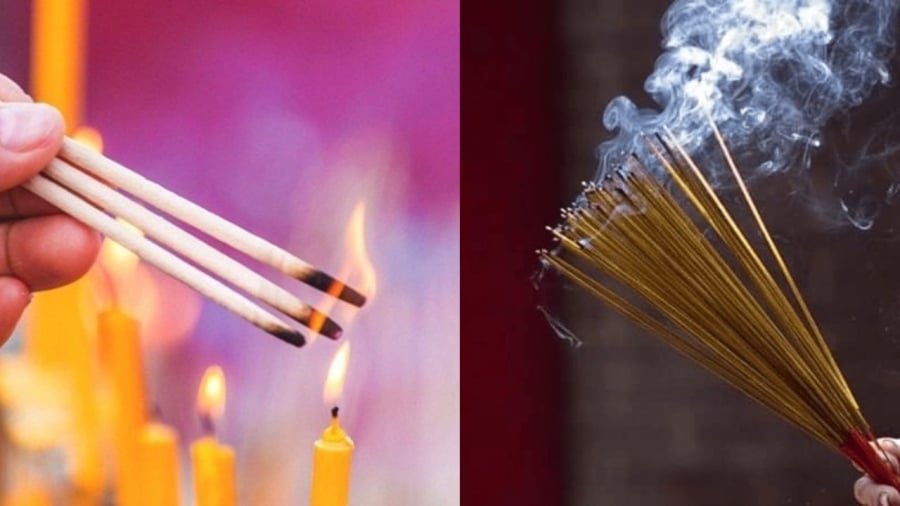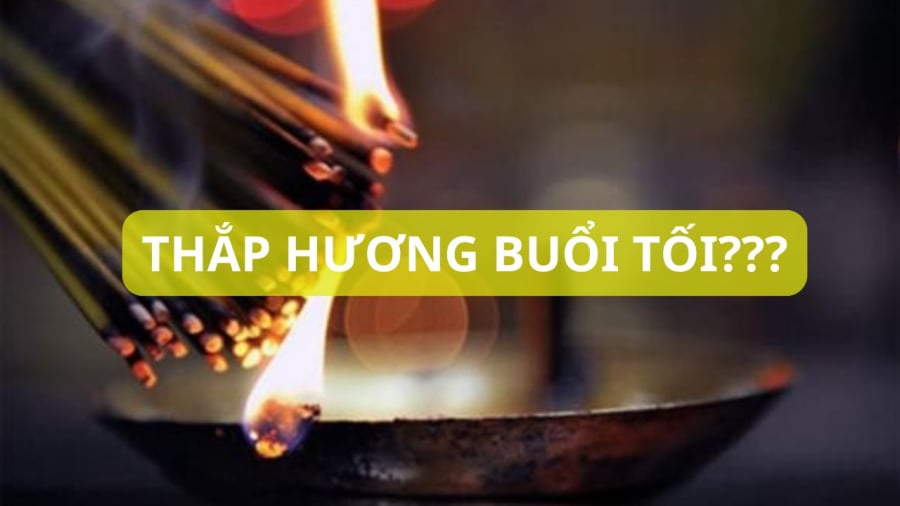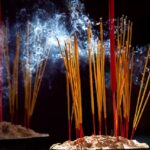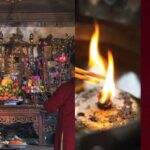The Significance of Burning Incense
In spiritual culture, burning incense is a sacred practice. Incense is burned to connect with deities and ancestral spirits. Especially on the 1st and 15th days of the lunar month, when the moon’s cycle changes and has significant effects on natural conditions and Earth’s gravitational forces. Thus, burning incense during these times is believed to invite divine protection and blessings from ancestors, helping to overcome challenges and bring good fortune. Burning incense also serves to gather positive energy at the altar, filling the space with fragrant smoke to ward off negative forces. The act of burning incense creates a solemn atmosphere for worship, and the scent of incense has a positive impact on the psyche, inducing a spiritual state.

Burning Incense Holds Deep Significance
Why Ancestral Wisdom Advises Against Burning Incense in the Evening
Evenings are a time when yin energy prevails as the sun sets and the moon rises. Burning incense, being a bridge between the physical and spiritual realms, can invite entities from the afterlife or summon divine soldiers. Therefore, burning incense at night can increase yin energy within the home, creating an imbalance for those residing there. It may also attract malevolent spirits and ghosts, as the evening hours are when these entities roam freely and can follow the scent of incense to the source. Additionally, the sight of burning incense at night can evoke associations with the afterlife, ghosts, and spirits, potentially frightening those who witness it.
To maintain a positive and peaceful environment, our ancestors refrained from burning incense at night, thus avoiding an excess of yin energy and preventing negative psychological impacts. Evenings are also a time for families to gather and rest. The smoke from burning incense can cause discomfort and disturb sleep. Furthermore, performing spiritual rituals at night increases the risk of attracting negative entities, which can affect one’s health and fortune. As the night hours are already heavy with yin energy, burning incense adds to it, potentially leading to spiritual decline, illness, and disturbed sleep.

Burning Incense in the Evening is Strongly Discouraged
Notes on Burning Incense
On the 1st and 15th days of the lunar month, it is advisable to burn incense in the morning, as after noon, the yang energy prevails, making it unsuitable for ancestral spirits to witness the ceremony.
When burning incense as an offering, avoid chemically treated incense sticks that produce excessive smoke and leave behind unsightly ashes.
Always burn incense in a well-ventilated space by opening windows or doors to prevent a build-up of smoke. Avoid burning excessive amounts of incense to reduce the risk of fire hazards.
When lighting incense, avoid using your breath to extinguish the flame, as it is considered impure. Instead, gently wave your hand to put out the flame.
Choose natural incense made from pure ingredients, avoiding those treated with chemicals that may leave unsightly residue on your altar.
Ensure the incense sticks are kept dry and stored upright to prevent breakage or moisture, both of which are considered inauspicious.
For home altars, only burn incense sticks. Avoid using coil incense, as it is traditionally reserved for temples and shrines. Burning coil incense at a home altar is believed to create negative energy and disturb the peace of ancestral spirits, leading to disharmony and illness within the family.
When placing incense sticks in the incense burner, insert them straight and upright, avoiding a slanted or crooked position to prevent accidental knocking over.
This information is based on spiritual beliefs and practices.







































